Dog Losing Weight? Causes Of Sudden Weight Loss in Dogs & Solutions
Just like your own body weight, that of your four-legged friend is bound to vary throughout the course of the year. Regardless of the breed you own, from Chihuahua to Great Dane, your dog will go through periods of weight gain and weight loss. However, it is important to accurately identify when your dog is losing and gaining weight for normal reasons, and when weight loss in your dog is abnormal.

Not all pet owners are familiar with the causes for weight loss in their dog, and even fewer no how to solve these problems on their own. The good news is that you can identify some of these issues on your own at home with a relative degree of ease, but determining the proper solution requires a little extra knowledge. Throughout this article, we’re going to lend you a hand by identifying some of the common reasons for weight loss in dogs, help you determine when to see a vet, and develop a proper diet regime with a solution that involves healthy food sources.
Top 10 Reasons for Weight Loss in Dogs
Dogs, like people, are not one-size-fits-all when it comes to diagnosing the issues affecting their health. Just as your doctor would run multiple checks to determine the specific illness impacting your life and/or resulting in weight loss, so too should you be on the lookout for multiple potential causes of weight loss in your dog. The following sections run through the top 10 reasons most vets cite when reporting weight loss in dogs.
Malnourishment
Before we get too far, let’s be clear that poor nutrition and malnourishment are two different concepts in the health of a pet. Poor nutrition, as cited by Dogs Life magazine, is indicated often by a dull, lifeless coat, extra layers of fat, poor dental hygiene, and even issues with poop. Malnutrition on the other hand occurs when a dog has lost more than 10% of its total bodyweight.

While poor nutrition is often the result of eating too much food, not getting enough exercise, and/or eating poor quality food, malnutrition is a lack of adequate food supply. In some cases this is the result of abuse, though in other cases it is simply a lack of knowledge about a dog’s proper nutritional needs. Signs of malnourishment include:
- Physical appearance (bones of the ribs and shoulders visible)
- Gastrointestinal issues (odorous gas and inconsistent bowel movements)
- Low energy levels
- Susceptibility to illness
Diabetes
Diabetic issues in a dog are no different at the root than human diabetes. Low insulin and the inability of the body to absorb sugar from blood can lead to increased appetite in your dog, even though they are still losing weight. Senior dogs and those whose body weight is on the verge of obesity are the most prone to developing diabetes, though like in humans, diabetes in dogs can be genetic.
Anxiety
Stress or anxiety in your four-legged friend can rob them of their appetite. Dogs need to feel safe in order to eat their food, which means if they are anxious about their surroundings or the people within their environment, they may not feel safe enough to eat on a daily basis. According to the ASPCA, signs of anxiety (resulting from separation) include:
- Defecating/urinating in the home
- Incessant barking/howling
- Chewing/digging/destructive tendencies
- Escaping
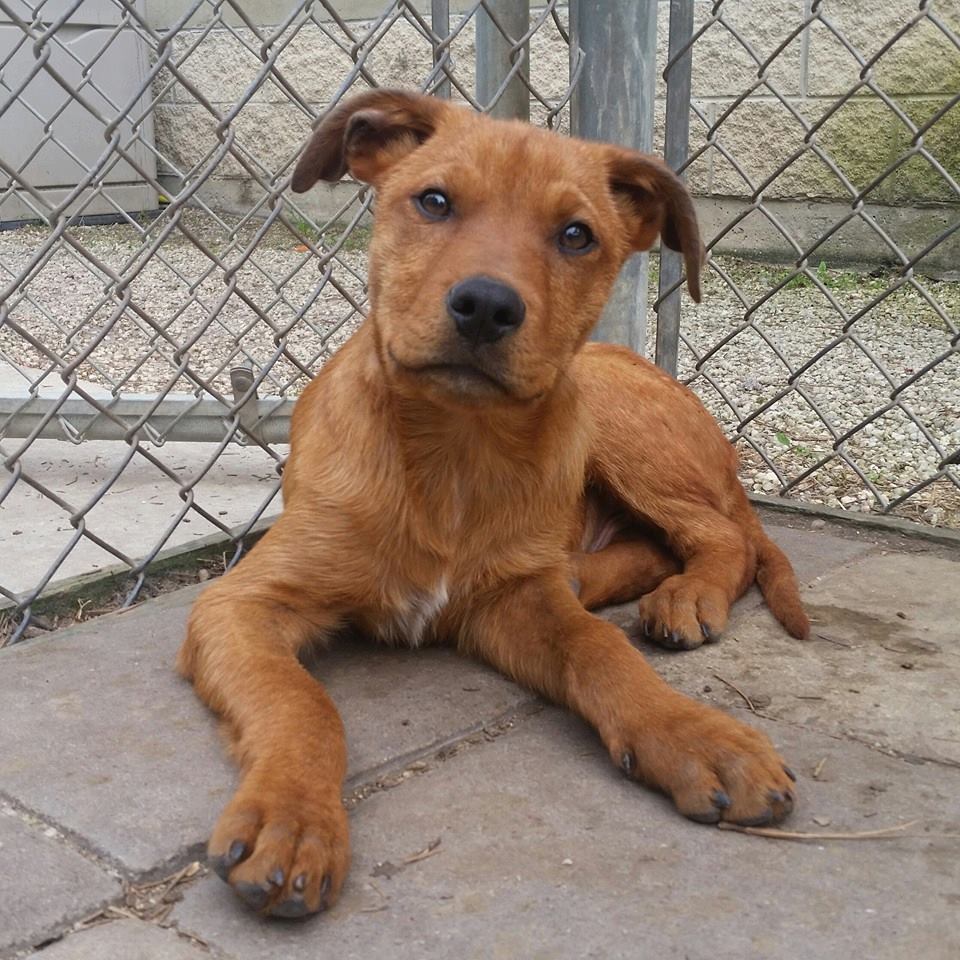
Tapeworm/Parasites
One of the more common, and harder to detect, causes of weight loss in your dog could be a tapeworm or other internal parasite. Dogs with parasites often exhibit rapid and sudden weight loss. A dog suffering from an intestinal tapeworm, for example, suffers from a lack of nutrients and loses weight because the tapeworm is consuming all of the food eaten by the dog.
Liver Disease
Dogs suffering from liver disease are dealing with a lack of essential carbs and sugars provided to the body by the liver. When a dog suffers from liver disease, it does not get the crucial nutrients needed from the liver and the body starts to consume its fat deposits as a result, as well as muscle tissue, in an attempt to replace the lost nutrients. According to PetsMD on WebMD.com, signs of liver disease in a dog include:
- Loss of appetite
- Weight loss
- Diarrhea or vomiting
- Increased thirst
- Increased need to urinate
- Confusion
- Yellowish eyes, tongue, and/or gums
- Blood in urine or stool
- Seizures
Dental Problems
One of the simplest reasons your dog may be losing weight can stem from dental issues. If your dog is suffering from a dental abscess or other issue related to the health of its teeth and/or gums, it may simply be too painful for your dog to eat. As a result of this lack of eating, your dog will begin to lose weight. Unlike some other issues, a trip to the veterinarian is the easiest way to identify a dental problem with your dog.
Thyroid Problems
A dog’s body is controlled by hormones, just like your human body. Imbalances in the hormones in your dog’s body can be the result of a thyroid issue. Hyperthyroidism is a condition that results in a rapid metabolism that leaves your dog at risk of extreme weight loss. No matter how much they eat, the rapid metabolism of their body quickly breaks down, or even inadequately breaks down, the nutrients it is receiving and passes them through the system without absorption. A vet’s assistance is required in detecting thyroid issues. Once that is achieved, thyroid problems can be easily managed with the help of meds.
Addison’s Disease
This is an adrenal insufficiency in your dogs’ body that results in a steroid hormone deficit. Signs of Addison’s disease include vomiting, diarrhea, fatigue, and low blood pressure. PetMD points out that additional signs include a lack of appetite, shaking, increased frequency of urination and an increased thirst.
PetMD goes on to point out that Addison’s disease among dogs is relatively rare, but it is most often seen in young to middle-aged dogs, females, and those breeds from the Bearded Collie, Standard Poodle, Portuguese water dog, West Highland white terrier, Rottweiler, and wheaten terrier lineages.
Mouth Lesions
Mouth lesions, like dental issues, can result in weight loss in your dog because it is just too painful to eat food. The best way to detect these issues is by visiting your vet the moment you notice a lack of interest in food and significant weight loss as a result.
Pregnancy
Pregnant dogs can go through an early period of nausea during pregnancy, just like human females. It is not uncommon for a pregnant dog to lose weight in the first stage of pregnancy due to a lack of appetite stemming from the nausea. While this alone is not cause for concern, it is important to be aware of other issues that could accompany pregnancy.
Other symptoms could be behind the loss of weight during pregnancy, and range from anxiety (lack of appetite) to neuromuscular disease, poor digestion, cancer, or heart disease. If you notice poor muscle function, dull coat, dry skin, diarrhea, vomiting, and lethargy or depression, it is crucial to pay your vet a visit.
Possible Causes and Determining the Need for a Vet Visit
As you no doubt noticed in reading above, many of the common reasons for weight loss have similar warning signs or symptoms. Evaluating the possible causes of your dog’s weight loss starts with these symptoms, and in many cases it may lead to the need to call your veterinarian for assistance in improving the health of your four-legged friend.
Where to Start
If you’ve noticed that your dog is looking too thin or has been losing weight with no obvious reasons, it’s time to evaluate some of the circumstances surrounding their current condition. You can start by asking yourself the following four questions:
- Is your dog ill? If your dog is currently ill or has recently been ill, this could be the cause of weight loss. Where you need to exercise caution is the longevity of said illness and symptoms. Prolonged, chronic illnesses can lead to dramatic weight loss. Organ system failure, such as the pancreas or liver, can result in weight loss but can also be reversed if diagnosed properly.
- Is your dog’s coat sparse, coarse, or dull? A dull coat could be a sign of poor nutrition, malnutrition, or an intestinal parasite.
- Is your dog on medications? If your dog is taking medications for an illness, the weight loss could be the result of the side effects of the illness itself or a lack of appetite as a result of the medications.
- Has your dog suffered head trauma? A dog can suffer a concussion just as a human would, and the resulting dizziness and nausea could lead to a lack of appetite and noticeable weight loss in a short period of time.
Didn’t Help? Look Here
If those questions didn’t help guide your evaluation, or you already know some specific root cause of your dog’s weight loss, then perhaps you should consider the following information regarding specific conditions.
First and foremost, if you have a dog that appears too skinny after giving birth that might not necessarily be cause for concern. VetInfo points out that a female dog is likely to appear skinnier after having puppies, but that her bulk over the ribs should not feel thinner nor should you be able to feel the ribs. This is a point in time when superior nutrition is required as the mother is producing milk for her puppies, and will be required to do so in high demand for 3 to 4 weeks.

Additionally, if you notice that your dog is losing weight despite otherwise eating normally and/or even behaving normally, VetStreet has some ideas that could point to this condition which include:
- For pets with occasional weight loss, most of the conditions are benign and include a change in diet that puts less appealing food in front of your dog, changes in daily habit or movement to a new home, and even regular aging. Senior dogs losing weight is not uncommon as part of the aging process.
These conditions can often be reversed in the home by assessing whether or not changes have occurred in your daily routine, living arrangements, exercise schedule, or the diet of your dog. However, if you cannot pinpoint one or more of these as the root cause and you notice that weight loss is persistent and dramatic, you may have another condition on your hands.
If your dog suffers from persistent and dramatic weight loss, which again is defined as 10% of more of its body weight, then you may be looking at some of the serious conditions covered earlier. Be aware that even some benign symptoms, such as increased thirst coupled with weight loss, can be a symptom of kidney failure or diabetes. This is the point at which your pet should be taken to the vet for a full, comprehensive checkup.
The Solution
Helping your dog to maintain a healthy weight starts with calculating how many calories your dog should be consuming each day. Believe it or not, your dog requires different caloric intake depending on the time of year (winter vs. summer) and the type of breed you own. For example, working breeds often require higher calorie nutrition to maintain a healthy weight. The following grid should help you quickly identify the caloric needs of your dog:
| Dog's Weight | Summer Needs | Winter Needs | Puppy & Working Dog Needs | Dieting Needs |
| 5 lb (2.3 kg) | 120 | 180 | 200 | 150 |
|---|---|---|---|---|
| 10 lb (4.5 kg) | 420 | 630 | 700 | 270 |
| 20 lb (9 kg) | 700 | 1050 | 1200 | 470 |
| 30 lb (13.6 kg) | 930 | 1400 | 1400 | 580 |
| 50 lb (22.7 kg) | 1350 | 2000 | 2000 | 880 |
| 70 lb (31.8 kg) | 1680 | 2500 | 2500 | 1100 |
| 100 lb (45.4 kg) | 2400 | 3600 | 3600 | 1380 |
Miracle Vet™ offers a high-calorie liquid-diet supplement that will help your dog put on healthy weight, while also adding strength and endurance to provide sustained energy for your dog’s day. If you simply need to add a few healthy pounds, Miracle Vet™ can be added to your dog’s dry foods or administered by mouth with a syringe for those dogs recovering from extreme weight loss and battling malnutrition.
Whether your dog is recovering from an illness or disease, or simply needs to gain more weight because their diet to date has not been sufficient, there are means available to help you get your dog up to a healthy weight quickly.
This product is safe and effective, and was developed by a physician with 30 years of experience in the industry. Miracle Vet™ delivers the vitamins and minerals your dog needs for a healthy life, and helps them put on weight in a healthy manner with ingredients such as:
- Fish Oil: Omega 3 fatty acids help revive your dog’s appetite, renew its energy, and increase its stamina.
- Whey Protein: Improves their muscle strength, increases metabolism, and increases exercise performance so your dog can put on weight and still maintain an active, energetic lifestyle.
Most importantly, Miracle Vet™ DOES NOT include many of the same ingredients you’ll find in common, big-brand dog foods. There’s never any soybean oil, propylene glycol, glycerin, or Yellow #5 – Tartazine in Miracle Vet™. Your dog gets only the vitamins and minerals it needs for a healthy, natural lifestyle and sustainable weight gain. Get more info on Miracle Vet™ at: https://shop.bullymax.com/products/dog-weight-gainer
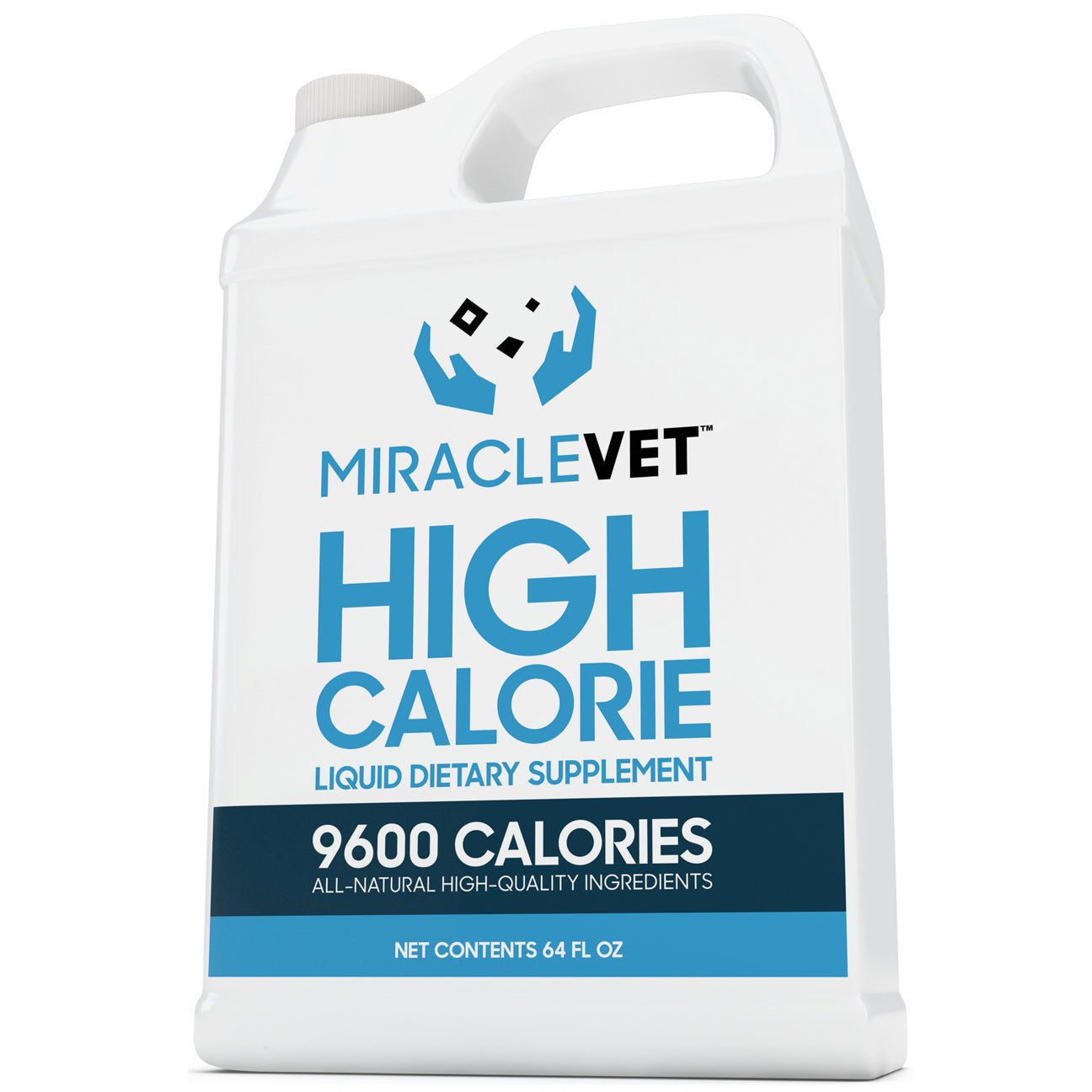
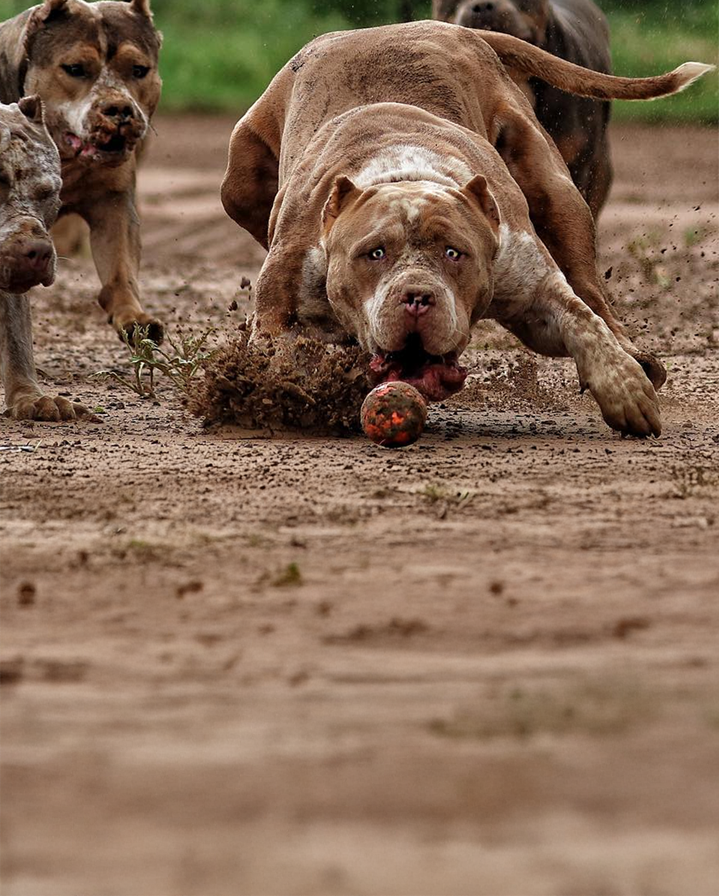
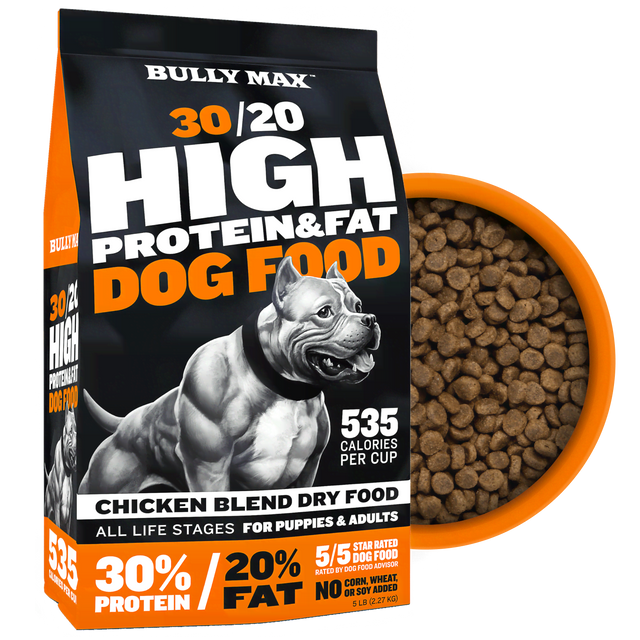
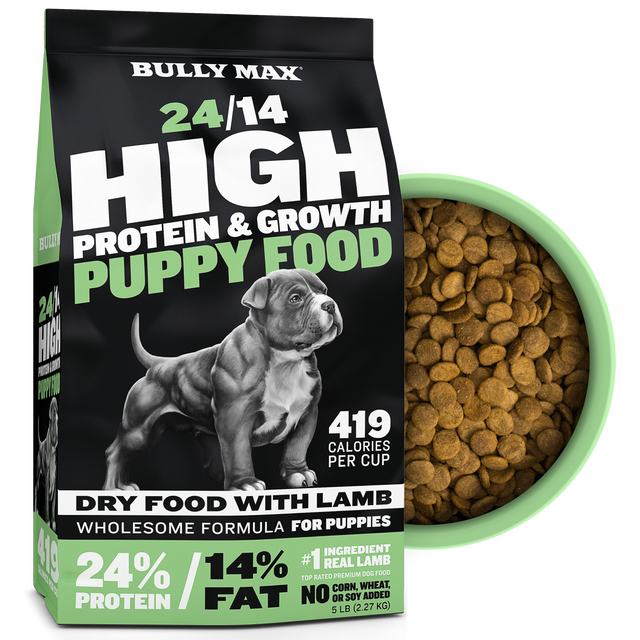
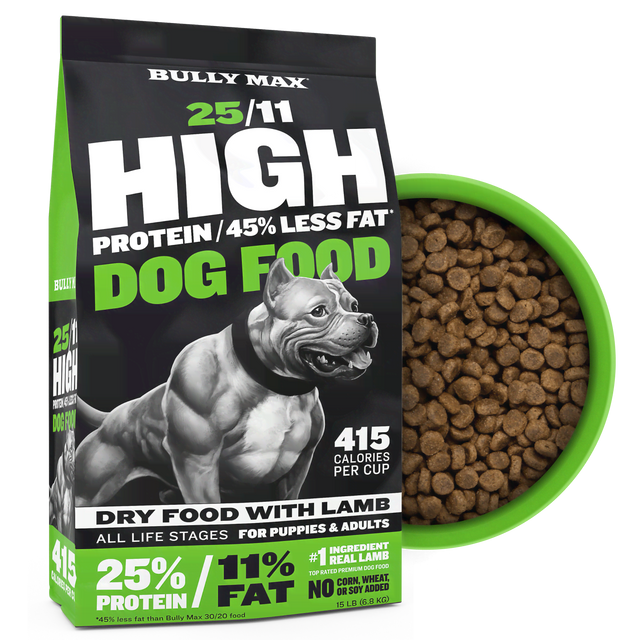
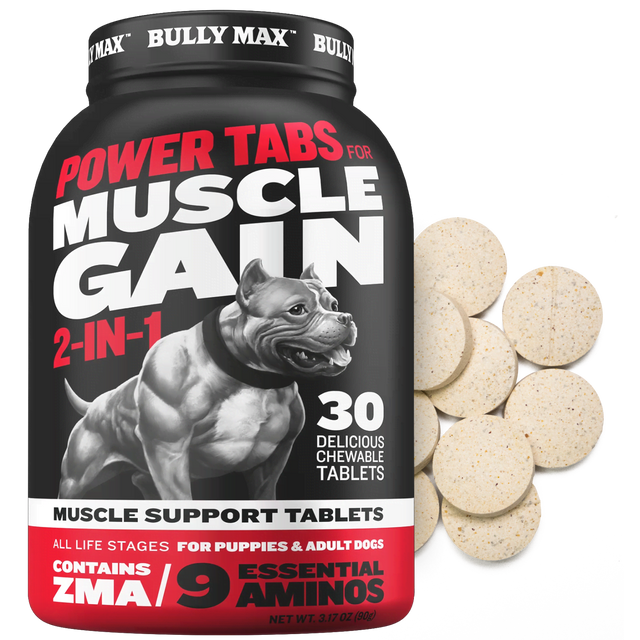

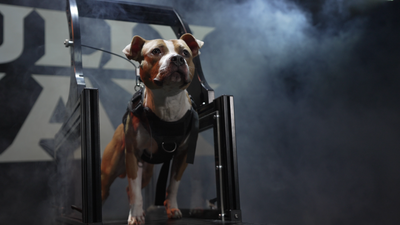
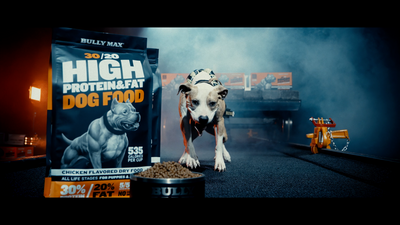
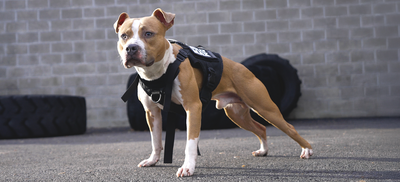
12 comments
https://uploads.disquscdn.com/images/3bdbaba0b89f0ea476677a9068633993a0f0895101a5d5751bc8a122579a7c77.jpg https://uploads.disquscdn.com/images/12d0ac32228b9ed99960f7d6eff80b27d2f05d6ea4c53c9823b94228acd9d757.jpg The dog you have featured for anxiety is my dog! Is this real life? I adopted her in Washington, D.C. from a southern kill shelter. We now live in California & I’ve recently switched her to a home diet. Reading up on dog nutrition I just random stumbled upon her pre-rescued baby picture- I’d recognize that face anywhere! Any chance Bully Max has information on who submitted this picture or where it was taken? She’s a rescue & we would love to hear more about her life before finding us.
My little Chihuahua is losing weight real fast t I’m getting worried
My is losing weight too but she eats and I have actually started giving more food. And actually now that I think about it it has been since I switched from frozen raw to dehydrated raw (SoJo’s). My problem is not that she is not eating it is that she is eating more but looking skinnier. Did you ever find out why yours is losing weight?
I checked the calories per cup on the brand mentioned (SoJo’s), and it’s considerably low (332 calories per cup). This may be the cause of the weight loss. I would recommend a food higher in calories. Your dog will require less food to meet their daily requirements. A meat based dry food would be a good start. Check dogfoodadvisor.com for some 5/5 star recommendations.
Sudden weight loss can be caused by a number of issues. Always contact your veterinarian for an examination if this occurs.